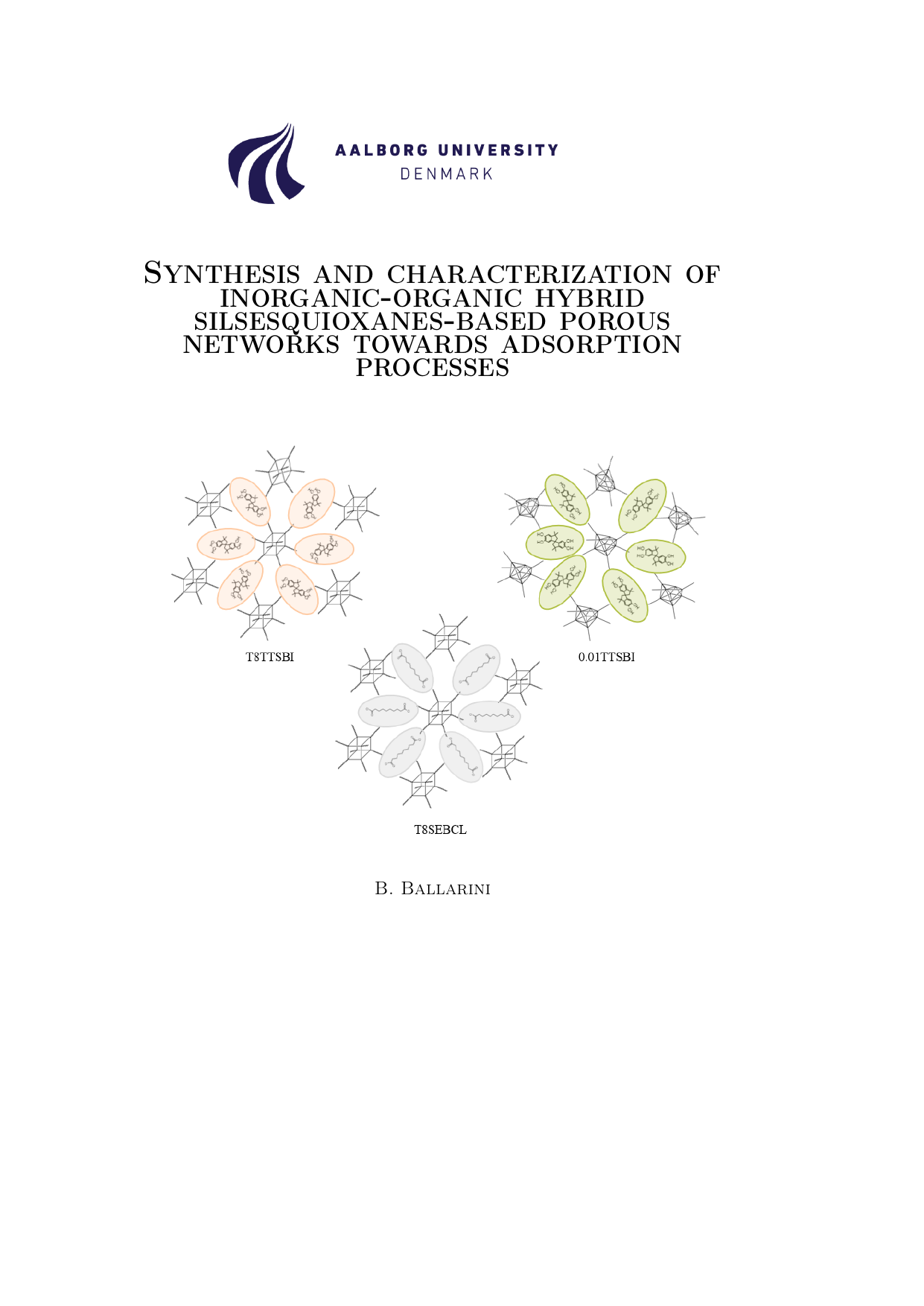
Synthesis and characterization of inorganic-organic hybrid silsesquioxanes-based porous networks towards adsorption processes
Author
Term
4. Term
Education
Publication year
2022
Submitted on
2022-06-09
Pages
60
Abstract
The synthesis of silsesquioxanes-based (SQ) porous polymers was constituted by two main steps: the synthesis of the precursors, and the polymerization between the organic and inorganic part. The solgel process was used for the synthesis of SQs, while the organic part, 5,5’,6,6’- tetrahydroxy - 3,3,3’,3’-tetramethyl-1,1’- spirobisindane (TTSBI), was synthesised via cyclization reaction. The followon cross-linking reactions were based on Schotten-Baumann reaction and Michael addition. The obtained SQ-cages and hybrids where characterized with 13C NMR, 1H NMR and ATR-FTIR. A total of three hybrids were obtained, respectively called 0.01TTSBI, T8TTSBI and T8SEBCL, which differ in structure and composition. The first is made by a random SQs network covalently bonded with TTSBI, while the last two share the cubic silsesquioxane structure (T8), however T8TTSBI is combined with oxidised TTSBI, while T8SEBCL is combined with sebacoyl chloride. These three hybrids were used as adsorbents in adsorption studies. The results showed that 0.0TTSBI was the most versatile, as it could adsorb in different quantities all the dyes and the heavy metal ion tested. Overall, it is concluded that the main mechanism of adsorption is chemisorption, combined with pysisorption for 0.01TTSBI.
Keywords
Documents
